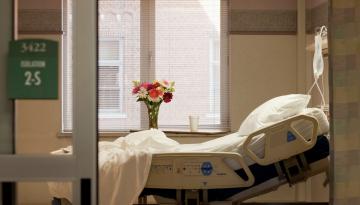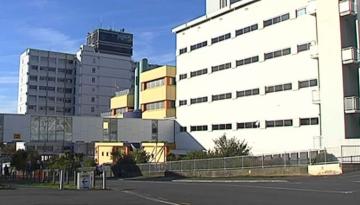
A 60-year-old woman has spoken of her anxiety not being able to get test results for a potentially cancerous mole amid New Zealand's COVID-19 lockdown.
The woman, who wished to remain anonymous, told Newshub her doctor wasn't able to find out whether the mole was malignant and said he wouldn't be getting any test results soon.
She has previously had two malignant melanomas.
"He [the doctor] looked at them and didn't say it would need to be a rushed job," she said.
She said the doctor was happy to write a referral but the clinic she was referred to had been "completely shut down".
"They are not seeing anybody that could be high risk."
The woman now just wants to get the mole removed and has given up on acquiring the test results. Despite her resolve, she is worried about others in a similar position.
"I know the reasons why this is all happening but there are people out there who are far more scared than me because they cannot be seen in hospitals," she told Newshub. "I know there are different types of malignant melanomas. I know there are some that are slow-growing and some can change dramatically within weeks, from nothing much to 'oh my god'."
Newshub spoke to Cancer Society medical Director and oncologist Dr Chris Jackson, who said how people seek and receive care for cancer has changed a lot since the level 4 lockdown.
He said the Cancer Control Agency has been very clear that people with a high suspicion of cancer, or people with cancer who require immediate treatment, should still receive those tests and treatments.
And while some appointments may be done by telephone or videoconference, essential scans and treatments should still be going ahead, he said.
"People who have symptoms or signs of cancer, or who are concerned that their existing cancer is worsening during the level 4 lockdown should still be able to access healthcare," said Dr Jackson.
He also recommended people should contact their GP, or their assigned cancer specialist if they have one. However, some treatments that heavily suppress the immune system may be deferred due to the risks of COVID-19.
Dr Jackson said these instances will be discussed with patients individually.
"Whilst the country is at alert level 4, patients that require urgent, time-sensitive treatments should expect those treatments to be completed," a Ministry of Health spokesperson told Newshub.
"We encourage people to contact their GP and arrange an appointment if they are concerned about their health.
"Skin lesions may be a variety of pathologies, some of which require urgent assessment, and others that are safe to be deferred. Your general practitioner is the best person to know when a lesion may require further assessment and investigation," the spokesperson said.


